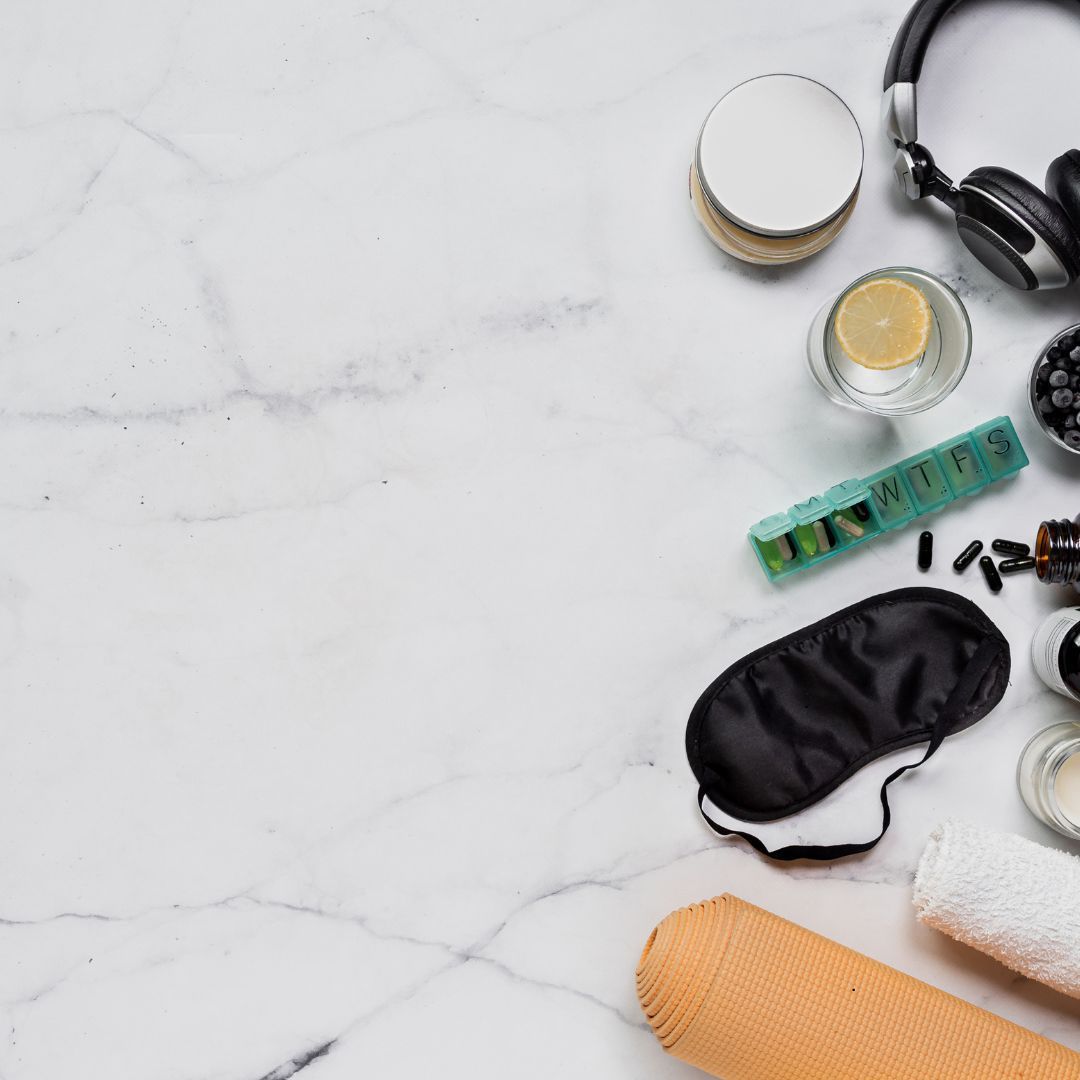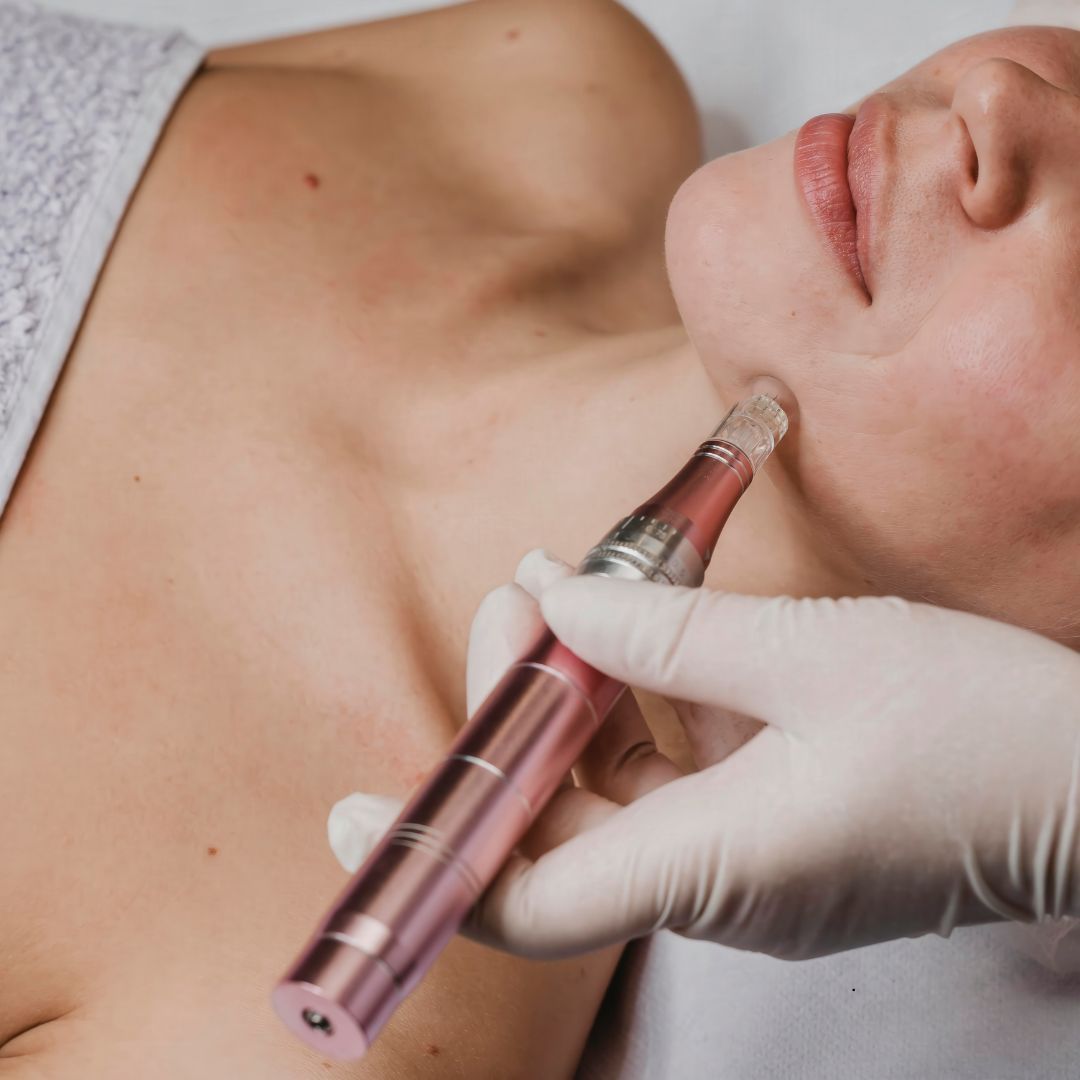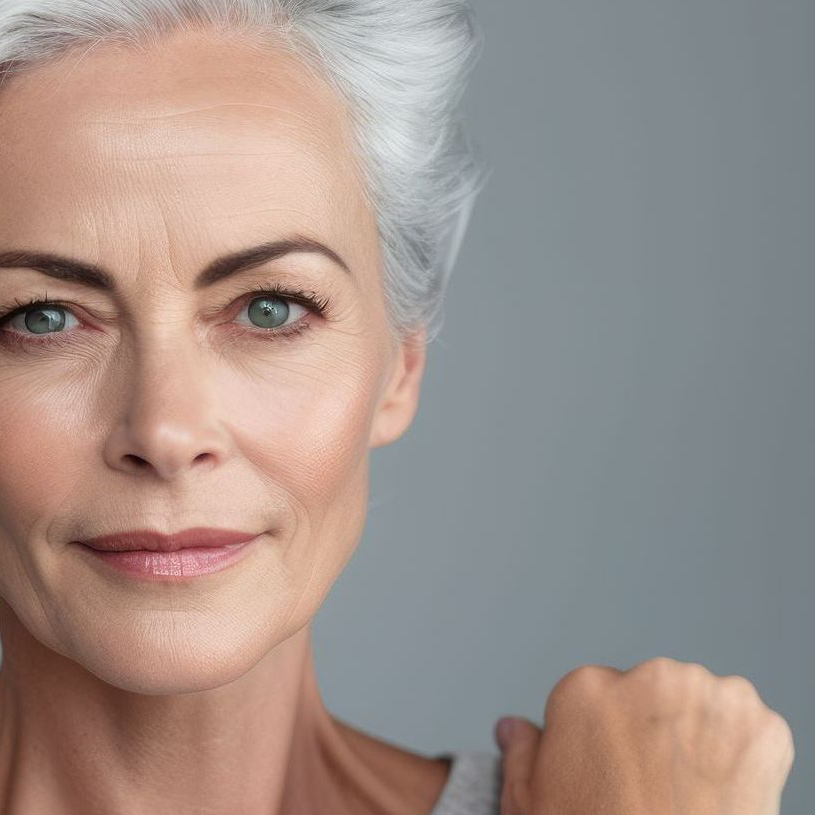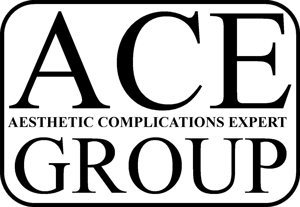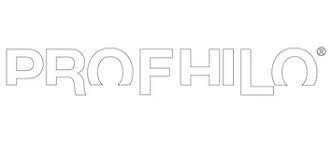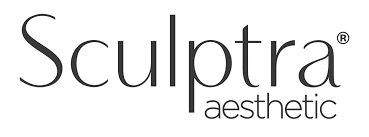WHY IS MY SKINCARE NOT WORKING?
CUT THROUGH THE MARKETING HYPE AND UNDERSTAND YOUR SKINCARE PRODUCTS

You've read about it in the glossy magazines, it's all over Instagram, the influencers are raving about it and it's sold out because someone did a TikTok video ... so why is it not working???
We've all been there - bought into the hype of the latest 'miracle' skincare product only to discover that our skin hasn't changed one little bit since we started using it. The main reason for this is that the product does not contain enough of the active ingredient(s) and/or does not have the ability to penetrate the skin barrier so the product is ineffective.
In the cosmetic industry marketing can be cleverly deceptive. It's very common for big brands to make bold statements and use trending buzz words to sell their products, e.g. 'contains retinol, clinically proven to reduce wrinkles' - yes retinol IS clinically proven to reduce wrinkles but only when it is used in the right formulation, the right dose and is able to penetrate the skin. Many high street 'retinol' products only contain a sprinkling of retinol which is not in the right formulation or at the right dose to have any effect on your skin. The same is true for lots of the ingredients marketed.
Here we are going to look at 3 of the most popular skincare ingredients and how the formulation of skincare products can differ and produce dramatically different effects.

HYALURONIC ACID
Hyaluronic Acid (HA) is well known as one of the most crucial ingredients in skincare. It is found naturally in the body and is responsible for hydrating the tissues and is also important for the production of collagen in the skin. Hyaluronic acid also helps to transport other ingredients from cell to cell so is a staple ingredient in good skincare ranges. BUT (and it's a big but) ... hyaluronic acid is only effective when it is able to penetrate the upper layers of skin and the sad truth is that most products contain HA molecules which are way too big to be able to do that. So your products need to contain a 'low molecular weight' HA or ingredients to increase the rate of HA production or slow down it's degeneration.
Our favourite HA boosting products are DIBI Milano Hyaluronic Extreme Moisturising Serum which contains a high concentration of low molecular weight HA and Tebiskin® Gluage Serum which contains two core ingredients which are able to create HA in the skin - Glucuronic Acid and Acetylglucosamine.
VITAMIN C
Vitamin C is an anti-oxidant and is a very common skincare ingredient. It is great for fighting off the free radicals which damage the skin and cause lines, wrinkles and a dull complexion. It is also important for the production of collagen. Vitamin C comes in many different formulations and effectiveness varies greatly. As a general guide look for products which contain L-ascorbic acid and avoid citric acid (this does not contain Vitamin C). The concentration of Vitamin C should be between 8-20% to be effective and you should also look at the delivery system and the colour of the solution. If the solution is quite yellow/orange this is an indication that the Vitamin C has oxidised and effectiveness will be reduced. A good Vitamin C serum should be completely clear.
We absolutely love the Alumier MD EverActive C&E which has a unique delivery system to ensure the 15% vitamin C complex is always optimally active. The Vitamin C crystals are kept separate in a unique cap and only mixed into the bottle of serum when you are ready to use it and will remain 100% fresh and active for up to 45 days.
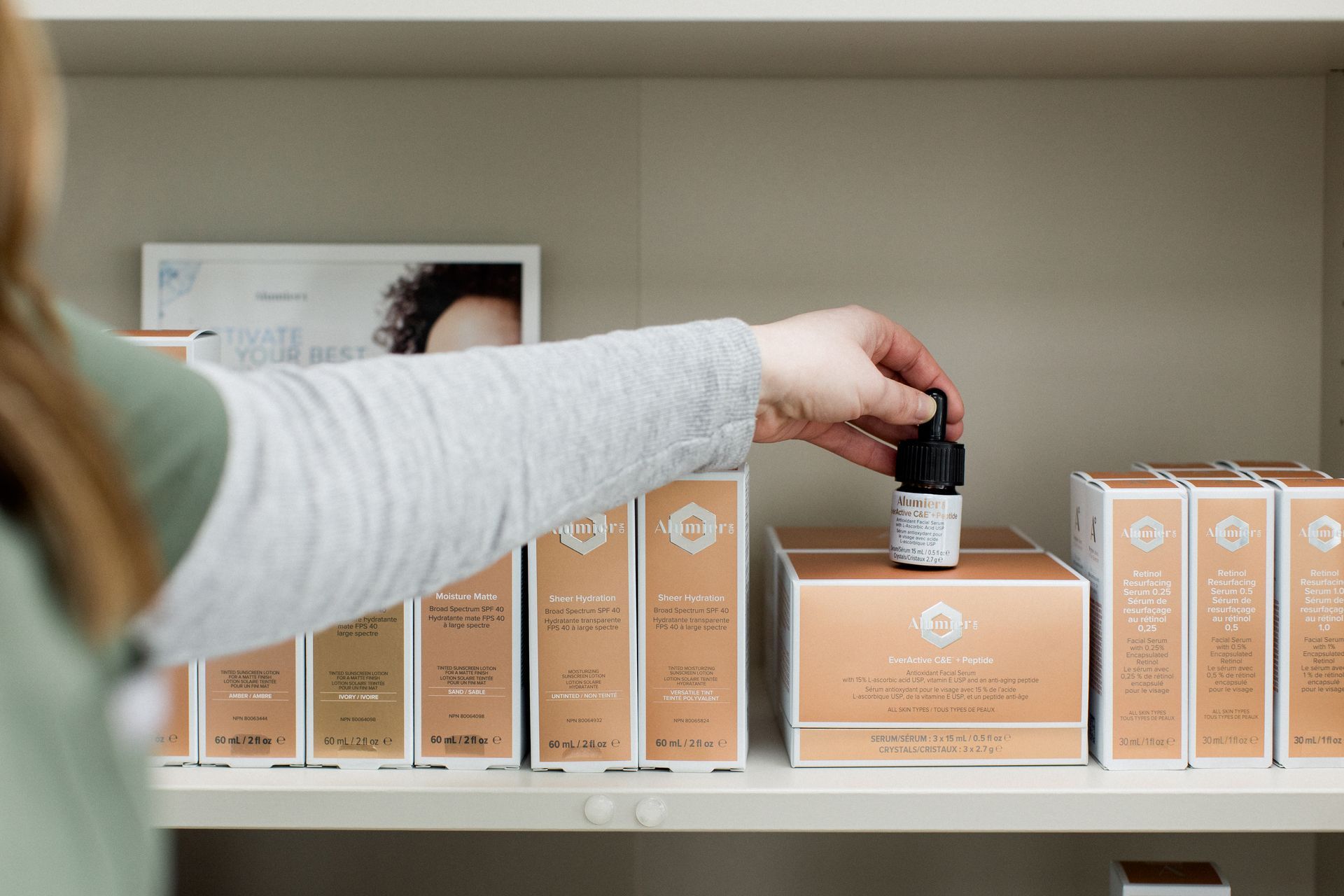
RETINOIDS
There are six main types of retinoids used in skincare products:
- Retinyl palmitate - this is the least potent over the counter retinol
- Retinaldehyde - an over the counter retinoid that's stronger than retinol
- Retinol - this is the standard ingredient found in over the counter retinoid products
- Tretinoin - a prescription only retinoid
- Tazarotene - a prescription retinoid which is used in the treatment of psoriasis
- Adapalene - a retinoid used in the treatment of acne
Retinoids come in many different formulations and strengths but different products with the same type and strength of retinoid are not always comparable as their effectiveness is often very dependent on their ability (or not) to penetrate the skin. For example, you could have two different products which both contain 2% retinol but one has a good delivery system to transport the retinol into the skin while the other does not. The one which can penetrate the skin will be more effective and will likely cause less skin irritation while the one that does penetrate the skin will be ineffective and cause skin irritation.
So how do you know which ingredients your skin needs and what products are right for you? Well a great place to start is with a skin analysis. At Halo Aesthetics we use the DIBI Milano Skin Analyser to assess your skin type and look in detail at what is happening with your skin. The analyser uses 5 different light modes to analyse hydration levels, sensitivity, inflammation, pores, pigmentation and collagen levels. By looking at this analysis we can advise which products you should be using and create a bespoke treatment plan and skincare routine with you. If you'd like to have a free skin analysis and consultation just give us a call or use the 'BOOK ONLINE' button on the right.
We look forward to taking you on a journey to better skin!

